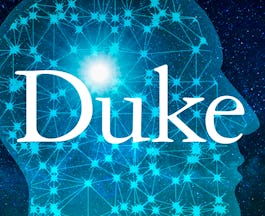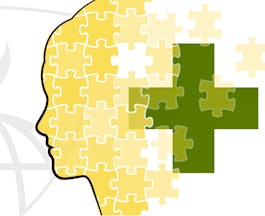Filter by
The language used throughout the course, in both instruction and assessments.
Results for "human factors"

Duke University
Skills you'll gain: Data Ethics, Human Computer Interaction, User Experience Design, Human Centered Design, Human Factors, Personally Identifiable Information, Information Privacy, Artificial Intelligence, Design Thinking, Machine Learning

Arizona State University
Skills you'll gain: Usability, Usability Testing, Problem Solving, Human Factors, Human Centered Design, Critical Thinking and Problem Solving, Creativity, Human Factors Engineering, Kinesiology, User Research, Decision Making, Display Devices, Human Computer Interaction, Human Learning, User Experience, User Interface (UI), Data Collection, Accident Prevention, Human Machine Interfaces, Physical Therapy
 Status: Free
Status: FreeYale University
Skills you'll gain: Psychology, Mental and Behavioral Health Specialties, Psychiatry, Mental Health, Human Development, Human Learning, Social Sciences, Psychotherapy, Behavioral Health, Sociology, Creativity, Non-Verbal Communication

Johns Hopkins University
Skills you'll gain: Triage, Crisis Intervention, Rapport Building, Emergency Response, Trauma Care, First Aid, Interpersonal Communications, Community Mental Health Services, Mental Health, Stress Management, Patient Referral, Health Assessment

Skills you'll gain: UI/UX Research, Design Thinking, User Research, User Experience Design, User Centered Design, Usability, Persona (User Experience), Web Content Accessibility Guidelines, Prototyping, Wireframing, Sprint Planning

University of California San Diego
Skills you'll gain: Design Research, Interaction Design, User Experience Design, Statistical Analysis, Ideation, User Research, Graphic and Visual Design, User Interface (UI) Design, Experimentation, Prototyping, A/B Testing, Usability Testing, Human Centered Design, User Centered Design, Mockups, Design, Human Computer Interaction, Human Factors, Telecommuting, Technology Strategies

Arizona State University
Skills you'll gain: Human Factors, Human Factors Engineering, Accident Prevention, Human Machine Interfaces, Usability, Systems Thinking, Human Centered Design, Performance Improvement
 Status: Free
Status: FreeUniversity of Toronto
Skills you'll gain: Relationship Building, Social Skills, Personal Development, Active Listening, Interpersonal Communications, Communication, Empathy, Self-Awareness, Emotional Intelligence, Needs Assessment, Psychology, Cultural Diversity
 Status: Free
Status: FreeFractal Analytics
Skills you'll gain: Behavioral Economics, Human Development, Learning Theory, Psychology, Social Sciences, Qualitative Research, Research Methodologies

University of Toronto
Skills you'll gain: Human Centered Design, User Experience Design, User Research, Design Thinking, Design Research, Qualitative Research, Innovation, Diversity and Inclusion, Complex Problem Solving, Empathy, Ideation, Creativity, Storytelling
 Status: Free
Status: FreeYale University
Skills you'll gain: Investment Banking, Risk Management, Financial Market, Financial Regulation, Financial Services, Finance, Business Risk Management, Securities (Finance), Financial Policy, Capital Markets, Behavioral Economics, Banking, Corporate Finance, Governance, Insurance, Underwriting, Equities, Derivatives, Mortgage Loans, Decision Making
 Status: Free
Status: FreeUniversity of Pennsylvania
Skills you'll gain: Vital Signs, Respiration, Health Assessment, Anatomy, Health Care, Patient Treatment
Searches related to human factors
In summary, here are 10 of our most popular human factors courses
- Human Factors in AI: Duke University
- Human Factors & Usability Engineering: Designing for Humans: Arizona State University
- Introduction to Psychology : Yale University
- Psychological First Aid: Johns Hopkins University
- Foundations of User Experience (UX) Design: Google
- Interaction Design: University of California San Diego
- What is the Human Factor in Design?: Arizona State University
- The Arts and Science of Relationships: Understanding Human Needs: University of Toronto
- Behavior Architecture - Understanding Human Behavior : Fractal Analytics
- Human-Centered Design for Inclusive Innovation: University of Toronto










